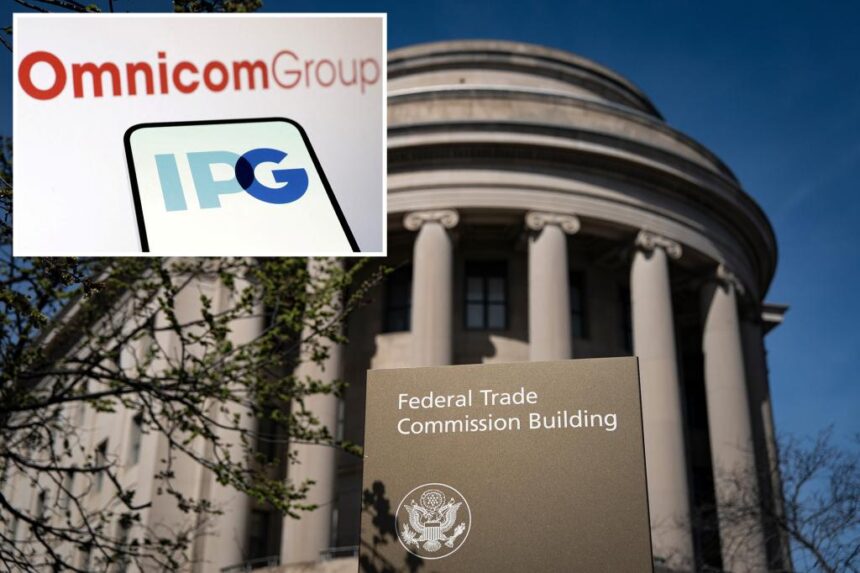The Federal Trade Commission is currently considering imposing a consent decree on advertising giants Omnicom and Interpublic as a condition for approving their pending merger. This decree would prevent the companies from suppressing ads to websites based on their political views. The move comes as part of a broader effort by the FTC, under the leadership of Chairman Andrew Ferguson, to investigate and stop collusive ad boycotts that unfairly target conservative media outlets.
Omnicom, based in New York City, was singled out by House Judiciary Committee chair Jim Jordan for its involvement in the Global Alliance for Responsible Media, a left-leaning advertising group accused of trying to defund news outlets like The Post. Jordan initiated an investigation into Omnicom following the announcement of the merger between the two advertising giants.
The proposed $13.25 billion all-stock deal between Omnicom and Interpublic would create the largest ad agency in the world, with an estimated annual revenue of around $25 billion. The terms of the merger deal are still under review and have yet to be finalized, according to a report by Reuters.
The potential consent decree from the FTC highlights a more politically charged environment for advertising agencies in the United States. Analysts believe that organized boycotts by advertisers could be illegal as they involve coordinated refusals to do business, potentially restricting competition.
In a recent development, the FTC has requested documents from top ad agencies, including Omnicom and Interpublic, as part of a broader review into possible violations of antitrust laws through participation in boycotts against certain news outlets. The investigation also targets watchdog groups like Media Matters and Ad Fontes Media.
The probe includes scrutiny of how firms dealt with Elon Musk’s X, which faced a mass exodus of advertisers after Musk acquired the social media platform and relaxed its content moderation policies. Musk had previously filed an antitrust lawsuit against the World Federation of Advertisers and its GARM initiative, alleging monopolistic practices in the online advertising ecosystem.
Overall, the FTC’s actions reflect a growing concern over the influence of advertising giants and the potential impact of ad boycotts on competition and media freedom. As the investigation unfolds, the future of the Omnicom and Interpublic merger remains uncertain, pending regulatory approval and potential conditions set by the FTC.








